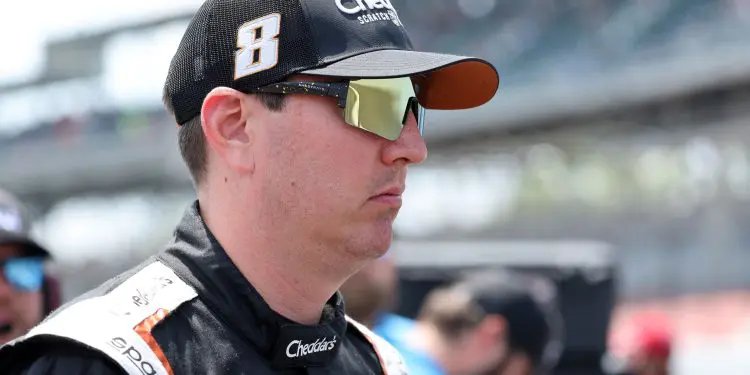For years, Kyle Busch was the undisputed king of NASCAR’s short tracks. With a staggering 16 wins to his name, Busch’s prowess on circuits like Bristol, Martinsville, and Richmond was the stuff of legend. But a troubling trend has emerged—Busch hasn’t claimed victory on a short track in his last 31 attempts, a dry spell that began in 2022. As his record comes under threat from Denny Hamlin, NASCAR fans and analysts alike are left wondering: Is this just a temporary slump, or has the two-time Cup Series champion lost his edge?
Short-Track Supremacy: The Kyle Busch Legacy
Kyle Busch’s career has always been a testament to versatility, but short-track racing has long been his forte. These tight, high-intensity circuits demand precision, aggression, and split-second decision-making—all of which Busch mastered early in his career. Over the years, he racked up 49 top-five finishes, 15 top-tens, and 16 wins on short tracks, cementing his place as one of the most formidable competitors in NASCAR history.
Before 2022, Busch’s dominance was undeniable. He consistently led laps, secured top finishes, and turned opportunities into victories. But that narrative has shifted dramatically in recent seasons.
The Dry Spell: A Stark Contrast
Since 2022, Busch’s short-track performances have fallen short of his high standards. In his last 17 short-track races, he has no wins, just one top-five finish (a third-place effort), and an average finish of 19.6—a far cry from the consistent excellence fans have come to expect.
This slump is particularly glaring when compared to his longtime rival Denny Hamlin, who has emerged as the current short-track dominator. With Busch’s winless streak now at 31 races, Hamlin appears poised to overtake him in this specialized format, raising questions about what’s gone wrong for the once-dominant driver.
The Culprits: Next-Gen Cars and a New Team
A closer look at Busch’s struggles reveals two primary factors: the introduction of the Next Gen car and his transition from Joe Gibbs Racing (JGR) to Richard Childress Racing (RCR).
- The Next Gen Car Revolution
Debuting in 2022, the Next Gen car was designed to level the playing field by emphasizing competitive parity. While this has created thrilling racing for fans, it’s also made it harder for even the most skilled drivers to dominate. The adjustments required to master the new car may have disproportionately impacted Busch, whose driving style was finely tuned to the dynamics of the older-generation vehicles. - The RCR Transition
After a highly successful 15-year run with JGR, Busch joined RCR in 2023. While he found success elsewhere, including three victories in his debut season with the team, the adjustment hasn’t translated to short-track success. Adapting to a new team’s systems, crew, and strategies takes time, even for a driver of Busch’s caliber. RCR’s short-track performance may not yet be up to the standard Busch was accustomed to during his time at JGR.
Can Busch Turn It Around?
Despite the slump, there’s reason to believe Busch can reclaim his short-track dominance. His three wins in 2023 show he still has what it takes to win in NASCAR’s modern era. However, success on short tracks will require significant adjustments—both in terms of car setup and team strategy.
The pressure is mounting. As Hamlin continues to shine on short tracks, Busch’s legacy in this format is at stake. The coming seasons will be critical in determining whether Busch can adapt and reclaim his status as the king of short tracks or if this dry spell marks the beginning of a larger decline.
A Career in Transition
Kyle Busch’s move to RCR marked a new chapter in an already storied career. While the results have been mixed so far, Busch remains one of NASCAR’s most talented and determined drivers. Short tracks may currently be a weak spot, but if anyone can stage a comeback, it’s Kyle Busch. For now, though, the clock is ticking, and his rivals are closing in.










